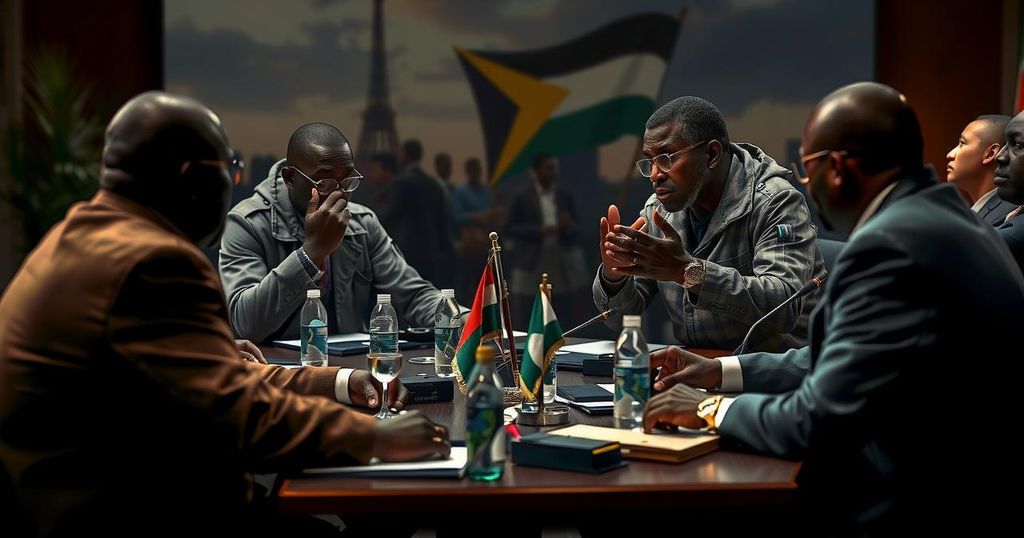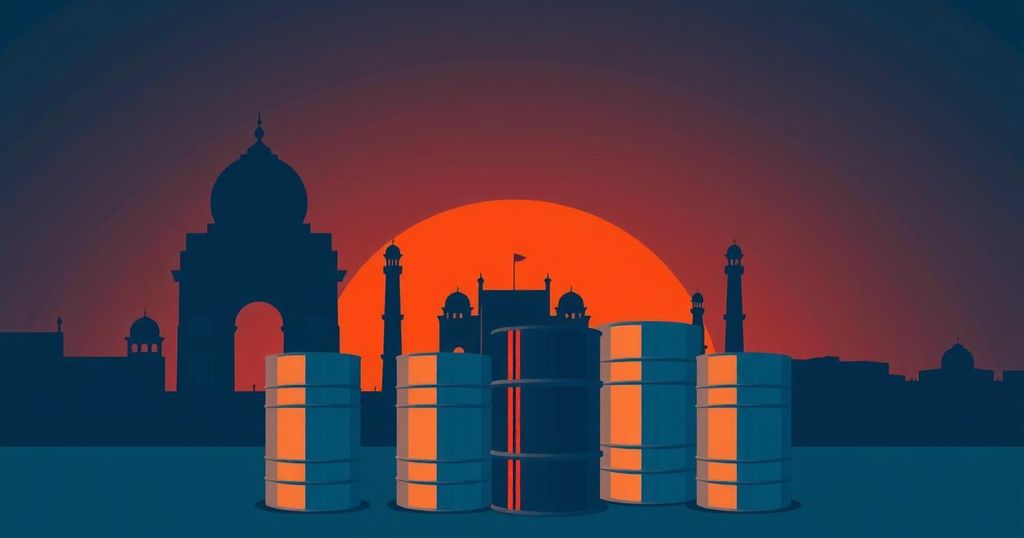Global news
AFRICA, CIVIL WAR, CONFLICT RESOLUTION, HUMANITARIAN, IGAD, INTERGOVERN, INTERNATIONAL CONFERENCE, JUBA, KENYA, KIIR, LAZARUS SUMBEIYWO, MOHAMED GUYO, NAIROBI, REFUGEE CRISIS, REFUGEES, RI, RIEK MACHAR, RUTO, SAL, SALVA KIIR, SOUTH SUDAN, STATE HOUSE, SUDAN, TGONU, TU, WILLIAM RUTO
Jamal Walker
0 Comments
South Sudan Holdouts Commit to Resuming Peace Talks in Nairobi
South Sudan’s holdout groups have agreed to resume peace talks in Nairobi following a visit from Kenyan President William Ruto, who discussed key issues with South Sudanese leaders. This initiative aims to include non-signatories in the peace process and is supported by the Intergovernmental Authority on Development (Igad). The recent developments indicate a potential for renewed dialogue and long-term peace in the region.
Recent developments have emerged from South Sudan as the holdout groups, which did not sign the 2018 peace agreement, have committed to re-engaging in peace discussions in Nairobi. This decision follows a series of consultations initiated by Kenyan President William Ruto during his visit to Juba, where he engaged with critical political figures, including President Salva Kiir and First Vice President Riek Machar. Both parties have agreed to reignite mediation efforts to address unresolved issues, signifying a positive step towards potential reconciliation and peace.
The ongoing conflict in South Sudan has led to a fragmented political landscape, with various factions opposing the Transitional Government of National Unity (TGoNU). The 2018 peace agreement aimed to stabilize the nation but left some holdout groups dissatisfied due to security concerns. Recent dialogues led by President Ruto, an appointed mediator, aim to include these non-signatories in future discussions through the Tumaini Initiative, supported by the Intergovernmental Authority on Development (Igad).
In summary, the resumption of peace talks in Nairobi represents a significant advancement towards reconciliation in South Sudan. The renewed commitment from both the government and holdout groups sets the stage for a comprehensive approach to address long-standing concerns, fostering hope for a viable peace process that supports not only the nation but the wider region as well. The involvement of regional stakeholders highlights the collaborative efforts necessary to achieve lasting stability and economic recovery.
Original Source: www.theeastafrican.co.ke




Post Comment